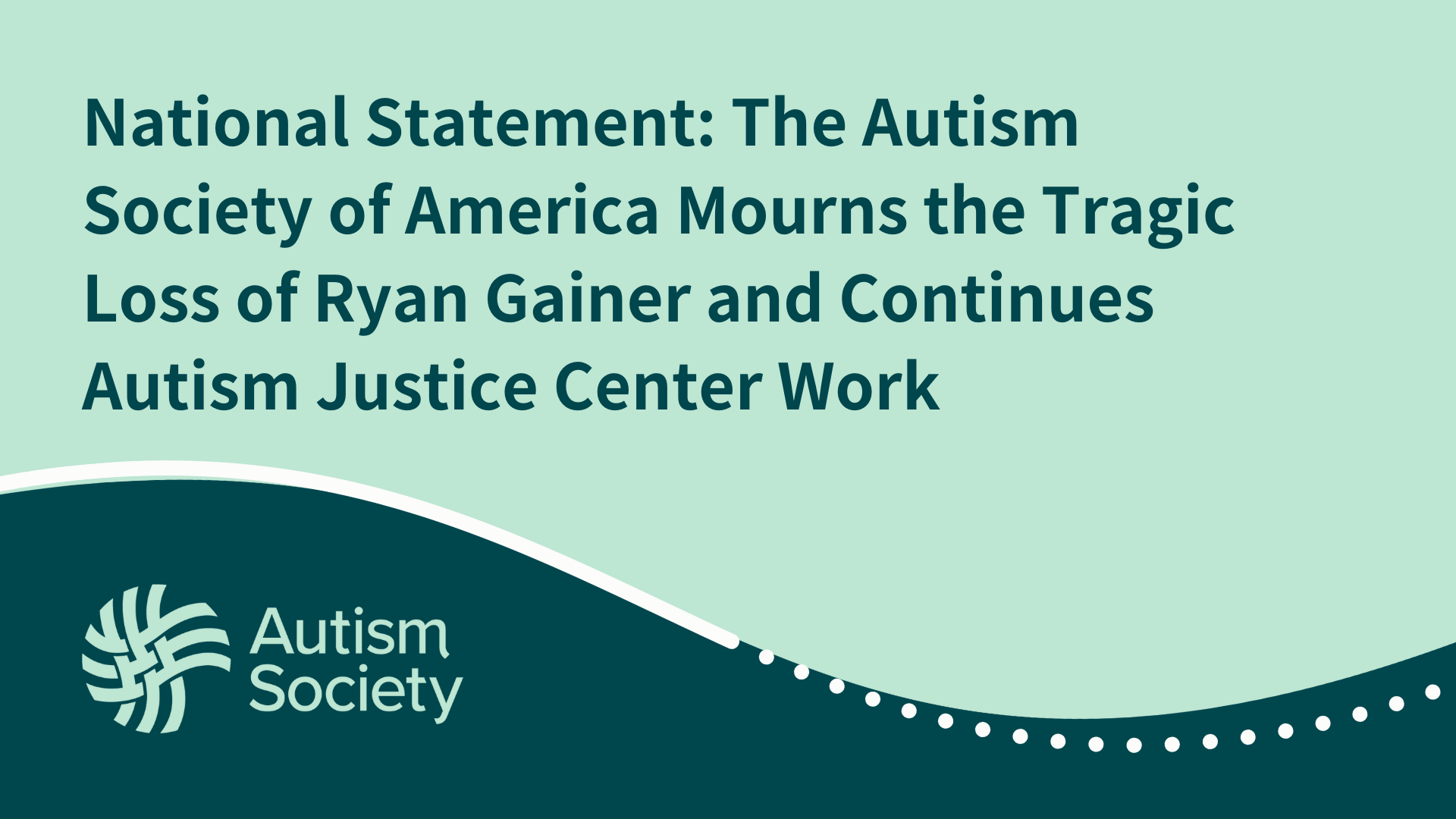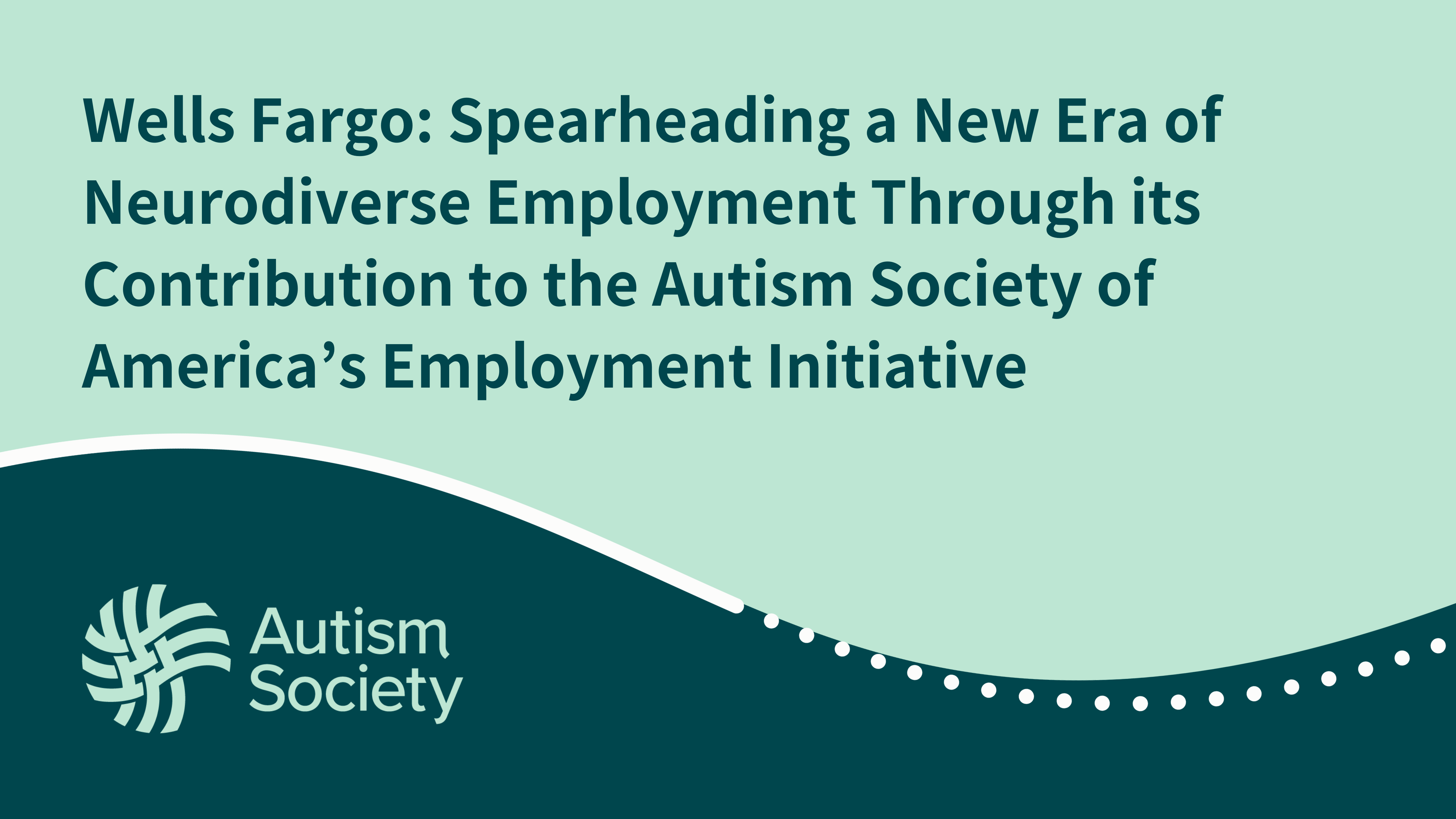
In this issue of Capitol Connection, use our Action Center to thank members of Congress for supporting Autism funding, find additional support letters for Fiscal Year 2025 funding, new bills introduced, a state advocacy win, and legal actions to stem disability discrimination. The Autism CARES Act must be reauthorized by September 30th. Use the Autism Society’s Action Center to educate your Members of Congress about the importance of continuing this law.
Letters in Support of Autism Funding
Representatives Chris Smith (R-NJ) and Henry Cuellar (D-TX), the bipartisan co-chairs of the House Autism Caucus, sent three letters to their colleagues to sign before sending to the Chairs of the House Appropriations Committee urging them to support increased funding for Autism programs. One of the “Dear Colleague” letters asks for Members of Congress to support additional funding for the Autism CARES Act. This includes funding for research at NIH, interdisciplinary training for health professionals through the LEND program, and increased funding for the CDC for prevention and surveillance activities. This letter also asks for additional funding for IDEA to support Autistic students. A second letter urges colleagues to support an additional $1 million (to $3 million total) for the Kevin and Avonte Law’s activities to prevent wandering or elopement of children with Autism and adults with dementia. This supports the Autism Society affiliates involved in prevention activities and law enforcement training. A third letter urges continued support for Autism research conducted through the Department of Defense to support families serving in the military. The CARES Act letter received sign-ons from 70 Representatives. Thank you for sending over 300 letters using our Action Center to urge your Members to sign on. Please thank them by using this Action Alert.
Water Bead Ban Bill
Senators Bob Casey (D-PA), Tammy Baldwin (D-WI), and Susan Collins (R-ME) introduced “Esther’s Law” on May 9th. This bipartisan legislation is aimed at banning the sale of water beads marketed to children. This bill, named in memory of Esther Jo Bethard, who passed away after swallowing water beads, aims to prevent similar incidents that have led to thousands of hospitalizations in recent years. The legislation also directs the Consumer Product Safety Commission to establish regulations, including warning labels, on water beads to protect children and pets. Esther’s Law has garnered support from various organizations advocating for child safety, including major retailers and medical associations. The Autism Society supports this legislation.
DSPs Classification Bill Letter
The Autism Society of America signed on to a letter led by the Consortium for Constituents with Disabilities (CCD) Long Term Services Task Force. This letter advocates for the Recognizing the Role of Direct Support Professionals Act (S. 1332). This bill aims to establish a standard occupational classification (SOC) for direct support professionals (DSPs). This bill passed the Senate unanimously in March. The letter calls for Chair Foxx (R-NC) and Ranking Member Scott (D-VA) to move the legislation through the House Education and Workforce Committee. DSPs are crucial for providing caregiving services and promoting independence for individuals with disabilities, yet they face a workforce crisis. Without accurate data on DSP employment and wages, policymakers cannot address this crisis effectively. Designating DSPs with their occupational code is essential to recognizing their contributions and the challenges associated with these contributions.
Education Task Force FY 25 Letter
The Autism Society of America signed on to a letter (along with 50 other national organizations) led by the Consortium for Constituents with Disabilities (CCD) Education Task Force. The letter states that Congress must address the historic underfunding of the Individuals with Disabilities Education Act (IDEA) and related programs and significantly increase and sustain key programs that support infants, toddlers, children, and youth with disabilities, their families, and the teachers and other personnel who serve them.
Letter Supporting Assistive Technology
The Autism Society signed on to a CCD letter urging Congress to provide $42 million for the Assistive Technology (AT) Act Programs. Funding provided through the AT Act supports programs that ensure people with disabilities have access to and can acquire the assistive technology, devices, and services they need to live, work, and attend school in their communities.
Section 1557 Final Rule
On April 30th, the Office for Civil Rights at the U.S. Department of Health & Human Services announced a Final Rule implementing the Health Care Rights Law or Section 1557 of the Affordable Care Act. Section 1557 prohibits discrimination in health care based on race, color, national origin, sex, age, and disability. The final rule is designed to eliminate discriminatory health care practices that exclude individuals with disabilities from participating in health care programs and activities, while also holding both providers and insurers accountable. Furthermore, the rule specifies that barriers to accessing health care, such as language barriers, physical and digital accessibility issues, and bias in technology, constitute forms of discrimination.
U.S. Department of Education, Raise the Bar One Pager
The U.S. Department of Education released the Raise the Bar: Eliminate the Educator Shortage priority page. This provides a comprehensive overview of ongoing efforts to address educator shortages and enhance the quality of the educator workforce. Despite pandemic-related challenges, significant progress has been made, largely thanks to the American Rescue Plan. The data highlights improvements in staffing levels, with increased numbers of crucial social workers and nurses. This being said, persistent shortages still exist, which particularly affect marginalized communities and students with disabilities. The Department of Education is implementing strategies to stabilize the profession, improve teacher compensation and working conditions, promote career advancement opportunities, support new teacher inductions, and enhance educator preparation programs.
Section 504 Rehabilitation Act Webinar
The Department of Health and Human Services (HHS) has rolled out fresh regulations under Section 504 of the Rehabilitation Act, strengthening protections against disability discrimination in healthcare programs and activities that receive federal financial assistance, including in the areas of medical treatment decision-making and providing services in the most integrated setting. On May 23rd at 3 pm ET, the National Health Law Program will dissect the updated rule and its implications for healthcare consumers with disabilities via a webinar.
State Advocacy
Case for Inclusion Report
ANCOR and United Cerebral Palsy released their annual Case for Inclusion report. This report highlights data on the need for community living for the intellectual and developmental disability community. Some key findings in this year’s report are that there are about 500,000 individuals on IDD waiting lists across the county. Vacancy rates for DSP positions increased substantially over the last year, with full-time vacancy rates increasing to 16.5% and part-time vacancy rates increasing to 20.3%. Advocates can use this report to show the need for the community to state and federal policymakers. Data is available state-by-state through the website.
Kansas Bill
The Autism Society along with the Autism Society of the Heartland, and other key disability groups throughout Kansas worked with the state Legislature to pass the Purple Alert. This alert would be activated upon the request of a family member for a missing individual with an intellectual disability. As this bill gets implemented, the Autism Society will work with the Attorney General’s office to develop a strong self-directed protocol.
Justice Corner
ACLU Sues Federal Government Over Disability Rights Violations
In an important move, the American Civil Liberties Union (ACLU) has taken legal action against the United States Parole Commission and the Court Services and Offender Supervision Agency. The lawsuit alleges that current parole and supervised release regulations in D.C. are discriminatory towards individuals with disabilities. Allison Frankel, a staff attorney at the ACLU, highlighted the lack of disability accommodations, which leads to unjust incarcerations for technical violations. This can be seen in the case of Mr. Mathis, who received 10 days of incarceration for not reporting while he was in the hospital because of a disability. This lawsuit aims to enforce federal disability law and demands that guidelines factor in individuals’ disabilities and provide necessary accommodations for successful reintegration into society.
Share:




